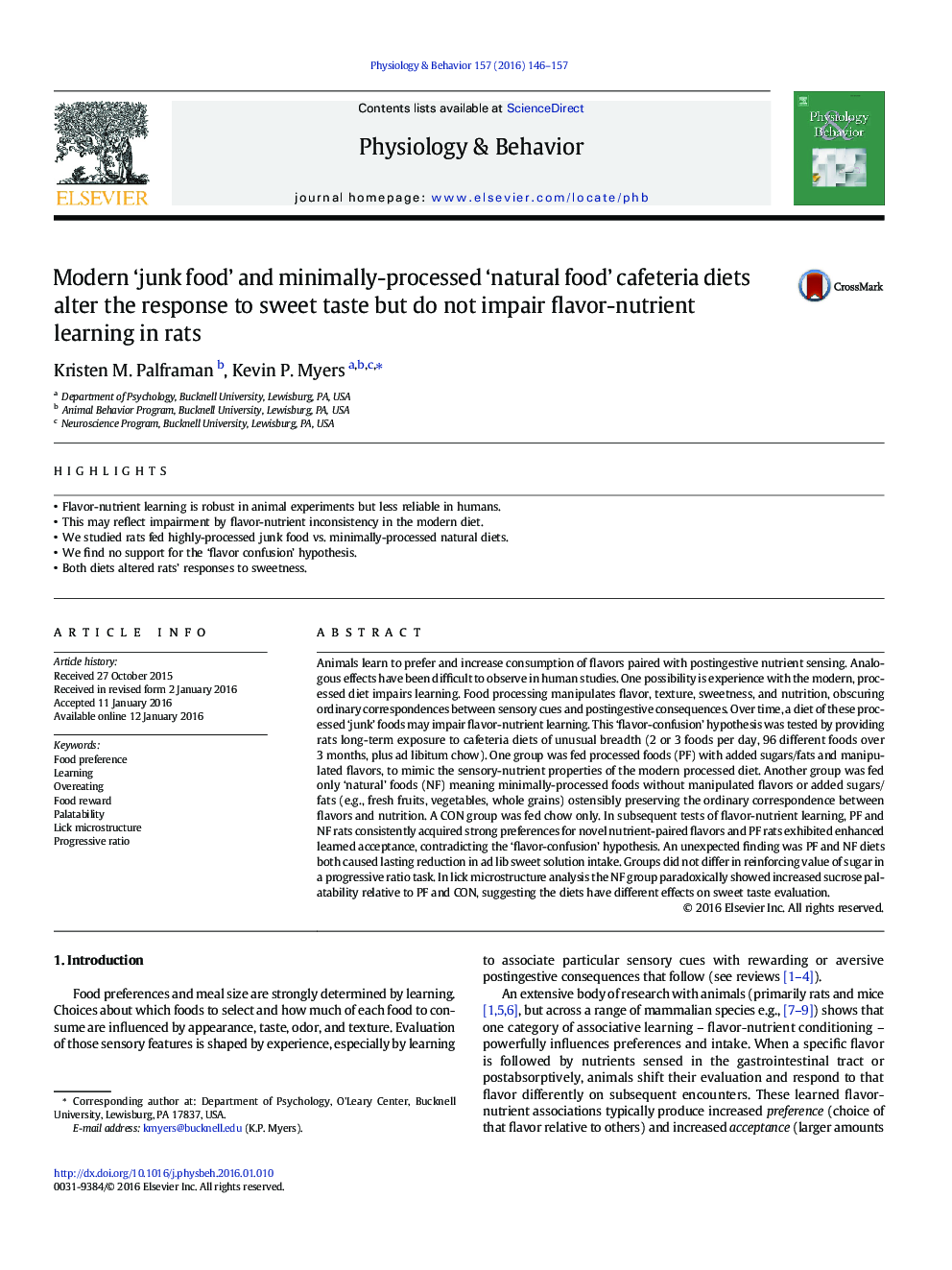| کد مقاله | کد نشریه | سال انتشار | مقاله انگلیسی | نسخه تمام متن |
|---|---|---|---|---|
| 2844017 | 1571161 | 2016 | 12 صفحه PDF | دانلود رایگان |

• Flavor-nutrient learning is robust in animal experiments but less reliable in humans.
• This may reflect impairment by flavor-nutrient inconsistency in the modern diet.
• We studied rats fed highly-processed junk food vs. minimally-processed natural diets.
• We find no support for the ‘flavor confusion’ hypothesis.
• Both diets altered rats’ responses to sweetness.
Animals learn to prefer and increase consumption of flavors paired with postingestive nutrient sensing. Analogous effects have been difficult to observe in human studies. One possibility is experience with the modern, processed diet impairs learning. Food processing manipulates flavor, texture, sweetness, and nutrition, obscuring ordinary correspondences between sensory cues and postingestive consequences. Over time, a diet of these processed ‘junk’ foods may impair flavor-nutrient learning. This ‘flavor-confusion’ hypothesis was tested by providing rats long-term exposure to cafeteria diets of unusual breadth (2 or 3 foods per day, 96 different foods over 3 months, plus ad libitum chow). One group was fed processed foods (PF) with added sugars/fats and manipulated flavors, to mimic the sensory-nutrient properties of the modern processed diet. Another group was fed only ‘natural’ foods (NF) meaning minimally-processed foods without manipulated flavors or added sugars/fats (e.g., fresh fruits, vegetables, whole grains) ostensibly preserving the ordinary correspondence between flavors and nutrition. A CON group was fed chow only. In subsequent tests of flavor-nutrient learning, PF and NF rats consistently acquired strong preferences for novel nutrient-paired flavors and PF rats exhibited enhanced learned acceptance, contradicting the ‘flavor-confusion’ hypothesis. An unexpected finding was PF and NF diets both caused lasting reduction in ad lib sweet solution intake. Groups did not differ in reinforcing value of sugar in a progressive ratio task. In lick microstructure analysis the NF group paradoxically showed increased sucrose palatability relative to PF and CON, suggesting the diets have different effects on sweet taste evaluation.
Journal: Physiology & Behavior - Volume 157, 1 April 2016, Pages 146–157